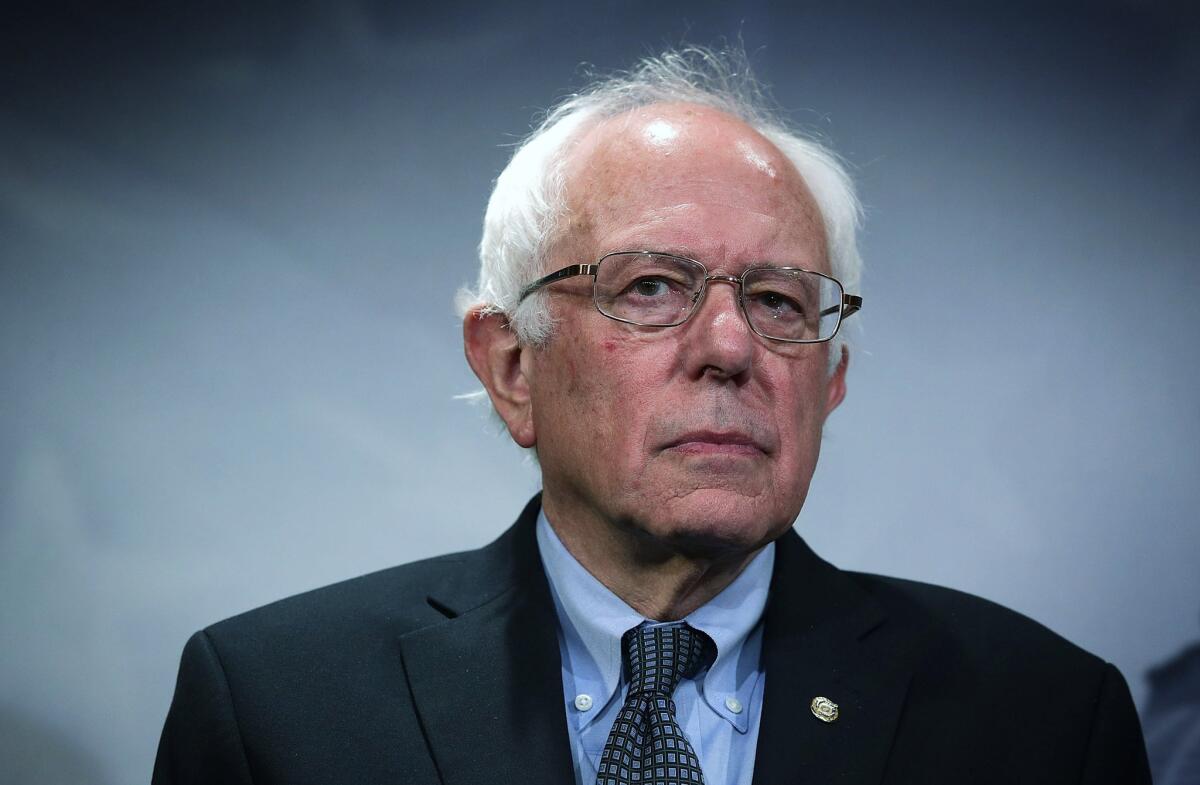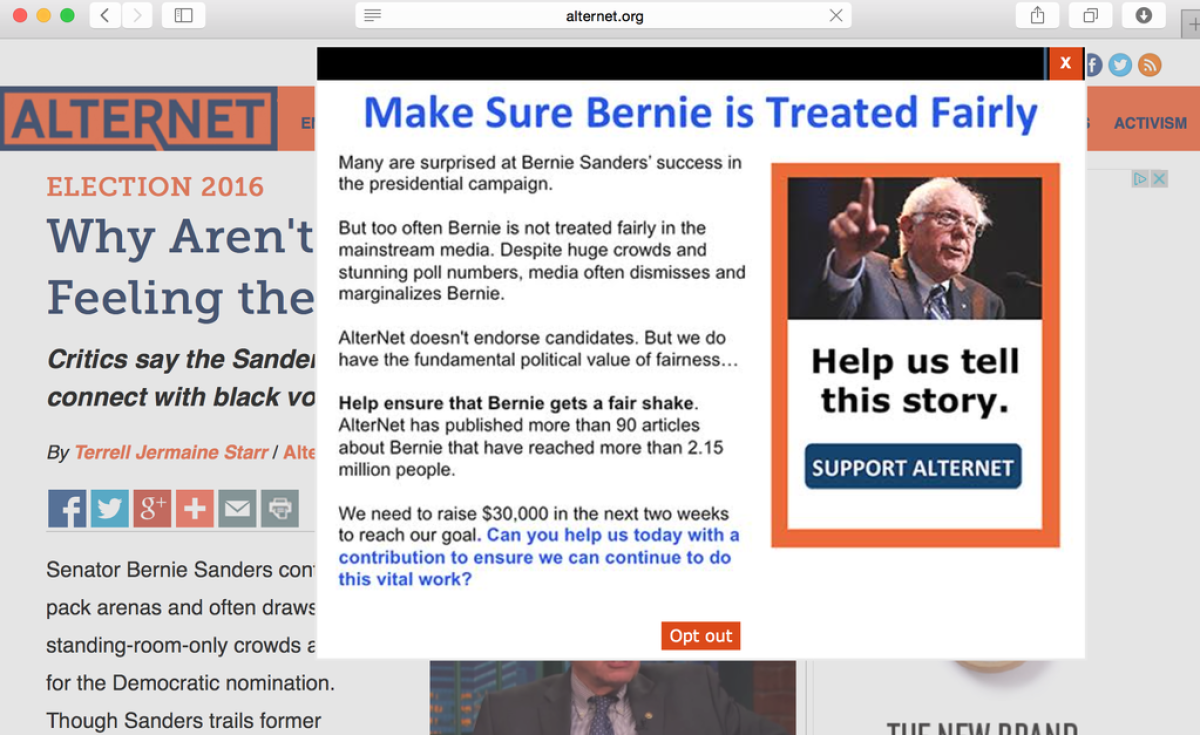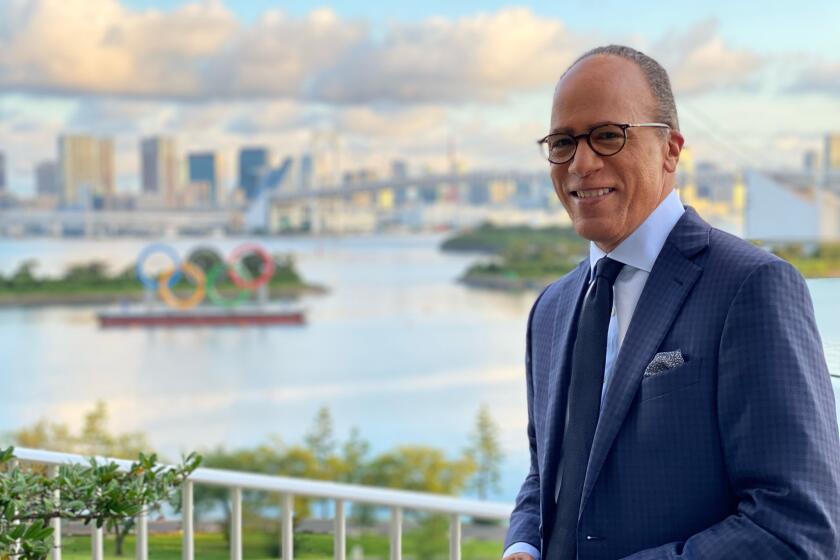Podcast: Is Bernie Sanders off-limits for black reporters?

U.S. Sen. Bernie Sanders.
- Share via
Frustrated over a rejected story about Bernie Sanders and race, Terrell Jermaine Starr, a senior editor at Alternet.org, started a complicated discussion recently about the position of black reporters in politics.
We spoke about it here:
Here’s the background.
In a series of tweets, Starr said that he had proposed a piece on Bernie Sanders to his editors at Alternet, a progressive news site, but that it was rejected. He wanted to analyze the difficulty that Sanders had in garnering support from black voters, but, he said, Alternet was not interested in a story that would criticize the candidate too harshly. In frustration, he began tweeting about the episode.
Immediately, his followers pushed back, tweeting to Alternet and demanding Starr’s piece run. Hours later, Starr tweeted that he had been told by his editors that the situation was a “miscommunication,” and that the story would be published. Starr also thanked his followers for supporting him.
In a statement emailed to The Times, Alternet executive editor Don Hazen said a “green light was delayed” on the article because of “internal editorial discussions” about the project. He said that he “was always interested in the piece,” and that Starr “misinterpreted” the delay in approval as a rejection.
Whatever the case may be, on Sept. 10, the piece – “Why Aren't More Black Voters Feeling the Bern?” – was published. It’s an exhaustive look at the campaign, and spotlights media commentators, political analysts and Symone Sanders, who’s both a supporter of the Black Lives Matter movement and national press secretary of Bernie Sanders’ campaign.
(Visitors to Alternet that day would also see a pop-up ad encouraging donations to “ensure that Bernie gets a fair shake,” though it also stressed that the site doesn’t endorse candidates.)

A pop-up advertisement shown on Alternet.org
I spoke with Starr about his insights gained from creating the report, on transparency in the process of media and about his feelings of his responsibility as a black reporter.
Some highlights from our discussion:
[On Alternet’s editorial hesitation about his piece on Bernie Sanders]: "It wasn’t anything where I was talking about somebody’s mama, or I was talking about somebody’s daddy. I was talking about the process [of journalism]. I felt like I was right, and I still feel like I was right, to not only discuss the process, but to talk about it on Twitter."
"For us to see the best of any candidate, we really need to see fair and objective and challenging journalism, regardless of who it is. … It’s the same thing with Obama. Black folk were much harder on him. So I don’t understand this white-man fragility that we have over these politicians like Bernie Sanders and anybody else. They’re big boys, they’re big girls. They’ll be all right. And for people who see my report, it was a very challenging analysis of [Sanders’] connection with black people, but it was definitely fair. I was simply reporting what experts who have been doing this for decades said."
"As a black reporter, I feel like it’s an obligation for me to be that voice that’s in the newsroom that says, ‘I have a connection with this community, and I know what’s going on.’ … It’s cool for [non-black] reporters to say what they want to say, but for me to have my voice not in there is unacceptable. … We have a great responsibility as black reporters, or reporters of color, because for us, it’s about more than the news."
"Bernie was at Benedict College this weekend, and the arena was half full, and it was mostly white people – at a historically black college. So what that tells you is that black people aren’t coming out, even at this point. [His campaign] can only say, ‘[Black people] don’t know who [Bernie] is' for so long. …I think the main issue is that he is not speaking to the emotional core of people."
Follow me @dexdigi for more on the intersection of culture and the Internet
Get the L.A. Times Politics newsletter
Deeply reported insights into legislation, politics and policy from Sacramento, Washington and beyond. In your inbox twice per week.
You may occasionally receive promotional content from the Los Angeles Times.







